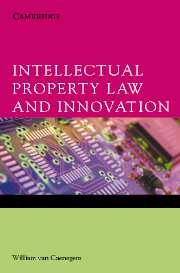2 - Trade secrets
Published online by Cambridge University Press: 05 June 2012
Summary
Introduction
[This chapter] This chapter concerning trade secrets or ‘confidential information’ consists of two main parts. The first part initially focusses on policy context, and then on the elements of the equitable action for breach of confidence itself; the second on a significant sub-category of confidential information: knowledge acquired by employees. This topic merits separate attention: first, because of the frequency of conflict about and the density of contractual terms concerning the dividing line between employers' trade secrets and employees' private knowledge. Secondly, because portability of employee knowledge impacts significantly on knowledge diffusion and therefore on innovation as a whole.
[Trade secrets?] This book is primarily concerned with technical trade secrets, ie information related to product and process innovation in a broad sense. But the applicable action in Australian law, the equitable action for breach of confidence, has a far broader remit, covering all confidential information, whatever its nature: from private confidences, to commercial or business secrets, to what is sometimes known as ‘know-how’, ie those technical secrets associated with patented inventions. Section 1a below considers some policy issues concerning the legal protection of trade secrets, against the background of a significant strategic choice for the innovative firm: between trade secrets protection and patenting. As will be further addressed in the next chapter, patents law is a system of monopolistic proprietary rights in inventions, based on application and grant on the basis of threshold tests of novelty and inventiveness, and with a limited monopoly term of 20 years.
- Type
- Chapter
- Information
- Intellectual Property Law and Innovation , pp. 25 - 59Publisher: Cambridge University PressPrint publication year: 2007
- 2
- Cited by



